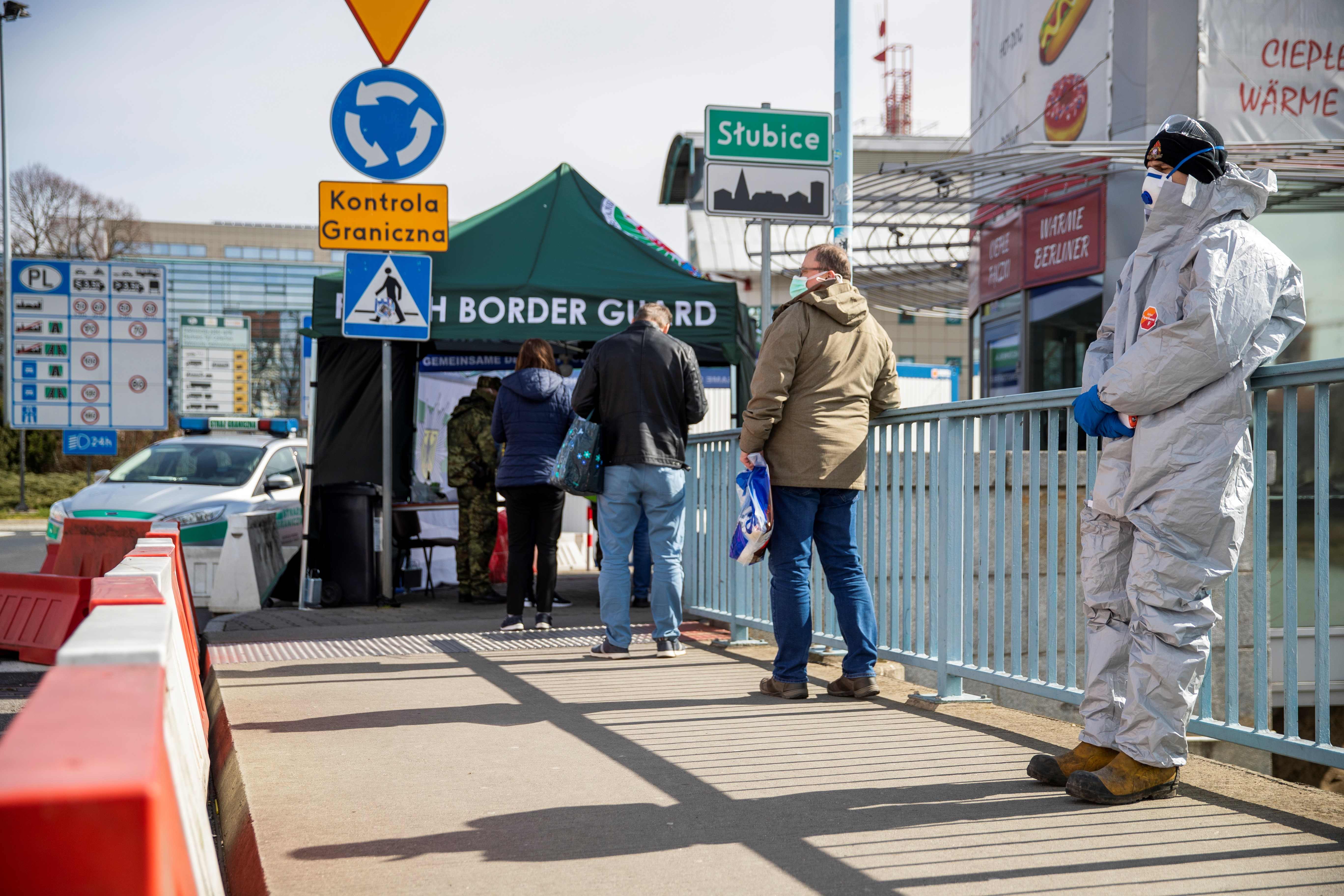Correspondent in Berlin,
Far from easing its internal restriction measures, Germany wishes to limit access to its territory even more. When the country has just passed the 100,000 contaminated threshold, the Minister of the Interior, Ernst Seehofer, intends to place in quarantine anyone who returns from a trip of a few days abroad. This measure would apply to German and European Union citizens as well as to residents of third countries, but with the exception of frontier workers and several professions essential to economic life and healthcare. Concretely, it consists of a strict confinement of 14 days at home.
Read also: Coronavirus: why is the death rate in Germany so much lower?
The proposal is subject to the approval of the sixteen Länder and will come into force on April 10. It was presented Monday morning in the Council of Ministers, and this, at the same time when the Austrian neighbor, on the other hand, announced the next easing measures, aimed at reopening stores from May 1. Germany already carries out since March 16, controls at its internal borders in the vicinity of France, Switzerland, Luxembourg, Austria, and Denmark, and in collaboration with these countries, recalls Berlin. "Crossing the border will be limited in both directions, to what is strictly necessary," said French interior minister Cristophe Castaner at the time. For its part, Berlin repressed, between March 16 and April 5, 70,000 people on its border with its five "western" neighbors.
Read also: Coronavirus: does Germany really perform 500,000 tests per week?
The measure will also affect Poland and the Czech Republic, the border through which many health workers working in German hospitals and retirement homes pass. In some traditionally poorly monitored border areas, the police are said to have the right to intercept anyone within 30 kilometers of the border, and to order quarantine or deportation. These provisions would also apply at airports and railways.
As of Friday, the director of the Robert Koch Institute (RKI), Lothar Wieler, had been fairly optimistic about the effectiveness of the restrictions put in place in the country, leading Angela Merkel, a few hours later, to have to correct her remarks. and renew its precautionary statements. At the same time, the business community was starting to pressure the government to ease the restrictions. Despite a slowdown in the rate of infections, the country counted 95,391 people this morning, according to RKI figures. On the other hand, John Hopkins University paints an even darker picture with 100,186 people infected, which places Germany - despite a low morbidity rate - fourth in the world among the countries most affected by the epidemic behind the United States, Spain and Italy, and ahead of France.
Read also: Coronavirus: "France and Germany are working together so that Europe overcomes this crisis"
"The protection of health will always be a priority in public life," Angela Merkel reminded Monday at a press conference, refusing to fix a date - even a gradual one - for confinement. Faced with "the greatest challenge that Europe has faced since its foundation" , in his own words, "it is in the interest of Germany that it emerges strong from this ordeal" , said the Chancellor who multiplies public appearances in front of his fellow citizens.







